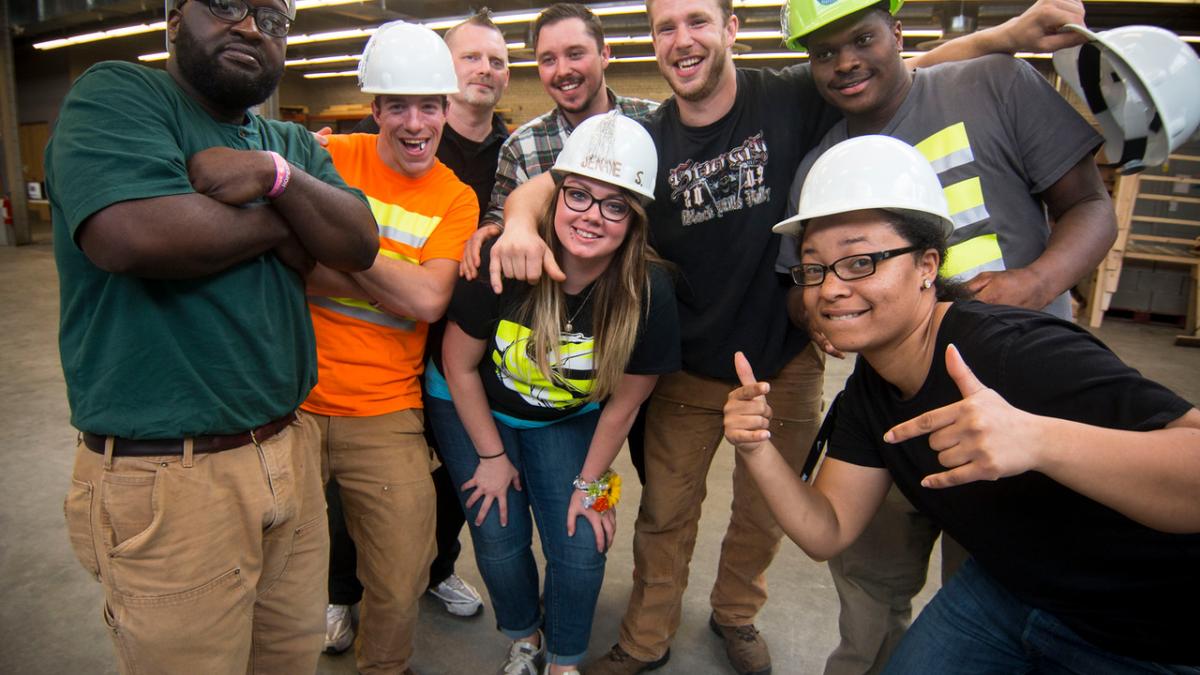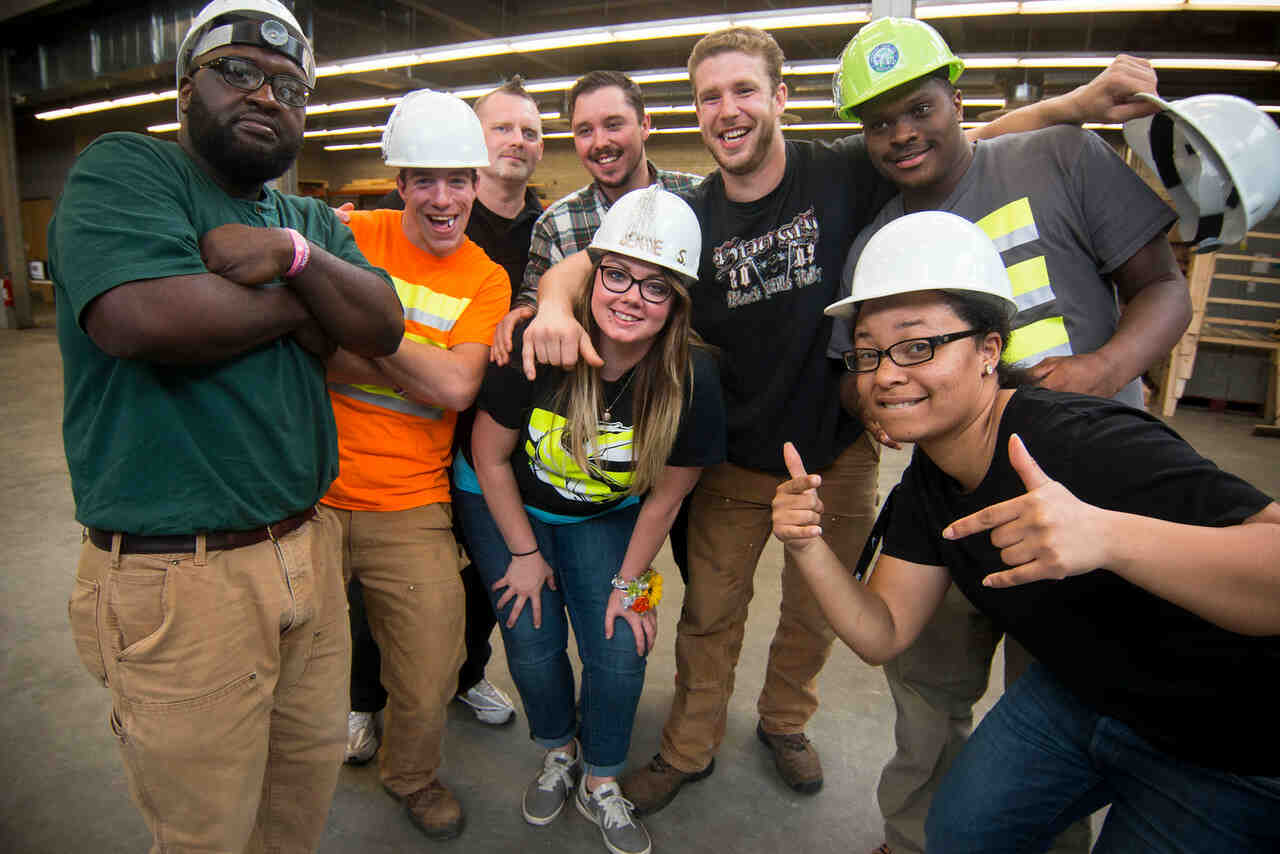
September 27, 2016
 Not everyone in the Washington State Building and Construction Trades Council’s King County Pre-Apprenticeship Construction Education (PACE) program makes it to graduation. It’s a grueling 11-week or 380-hour program for students who are “at risk” in more ways than one. But for those that do, there is a 90-percent placement rate and the opportunity to make $18-20 an hour.
Not everyone in the Washington State Building and Construction Trades Council’s King County Pre-Apprenticeship Construction Education (PACE) program makes it to graduation. It’s a grueling 11-week or 380-hour program for students who are “at risk” in more ways than one. But for those that do, there is a 90-percent placement rate and the opportunity to make $18-20 an hour.
PACE is the first pre-apprenticeship program nationally to be sponsored by a building and construction trades council. The program provides trades-related job skills toward a construction industry apprentice, which is an on-the-job training for novices under an experienced practitioner. Health and safety training are provided by the Department of Environmental and Occupational Health Sciences' Northwest Center for Occupational Health and Safety through a grant from the National Institute of Environmental Health Sciences - the NIEHS Worker Training Program.
 Job security and a steady paycheck aren’t taken for granted by PACE students. Many are minorities, from low-income groups. Some don’t have a college diploma or a GED, have learning disabilities, or have served time in prison."This program is a means for students to get back on their feet and break the cycle", said Michael Dunn, Manager of the NIEHS Worker Training Program in the Department of Environmental and Occupational Health Sciences, which provides health and safety training in PACE.
Job security and a steady paycheck aren’t taken for granted by PACE students. Many are minorities, from low-income groups. Some don’t have a college diploma or a GED, have learning disabilities, or have served time in prison."This program is a means for students to get back on their feet and break the cycle", said Michael Dunn, Manager of the NIEHS Worker Training Program in the Department of Environmental and Occupational Health Sciences, which provides health and safety training in PACE.
The construction industry is rife with hazards and job safety is key, particularly for workers new to the industry.
“PACE gives students a strong foundation in workplace safety and health, setting them up for safer, longer careers in a construction trade,” said Butch de Castro, an adjunct associate professor in DEOHS and director of the NIEHS Worker Training Program. We are committed to reducing work-related injuries among underserved worker populations through education,” he says.

Instructors provide asbestos, lead, OSHA 10-hour, and 40-hour Hazardous Waste Operations and Emergency Response (HAZWOPER) training. The 10-hour introduces students to hazards on the job and how to stay safe. Electrical, ladders, scaffolds, preventing falls, personal protective equipment, confined spaces, excavation, handling materials. The HAZWOPER teaches students about hazardous chemicals, how to safety handle and dispose of them to protect the safety of workers and the environment, and OSHA regulations. They are also taught life skills, such as managing finances.
To learn more about the PACE program, or to apply, contact Diane Davies at diane@wabuildingtrades.org or 206-947-5362.
This post has been adapted from an original story written by Elizabeth Sharpe, for DEOHS Environmental Health News.
Photos © Katherine Turner




